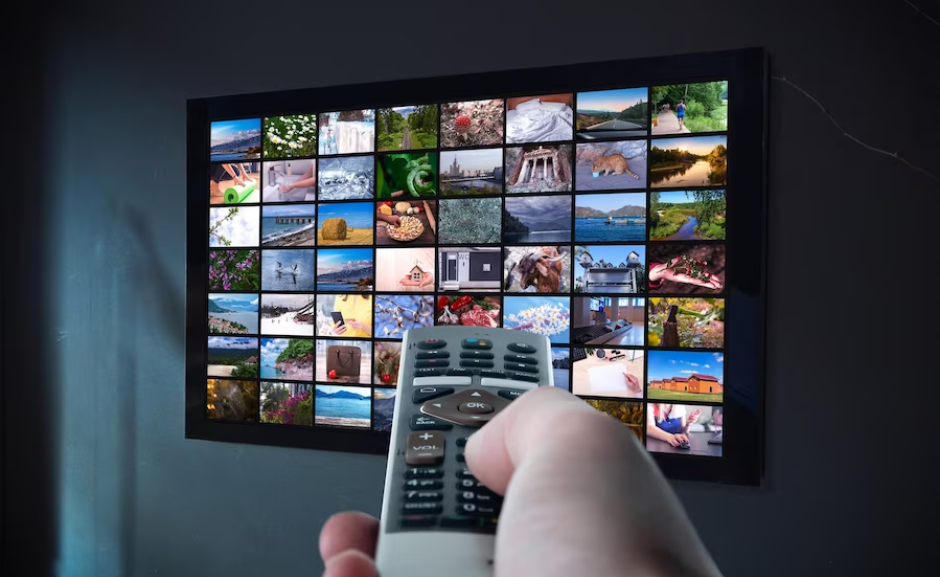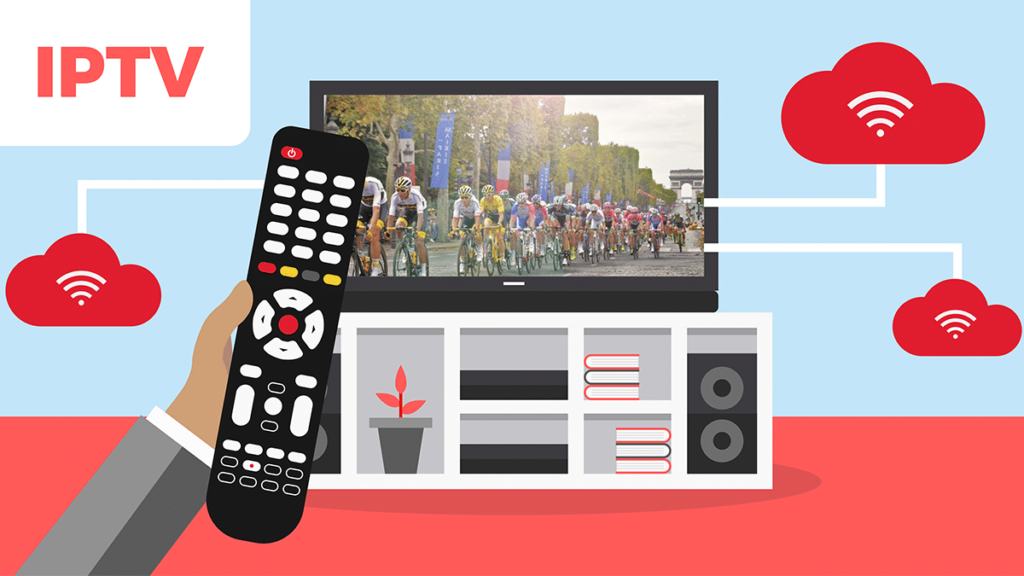
IPTV is a streaming service that delivers television content over the internet. It can be installed on different streaming devices. It offers a wide range of channels, including live TV, on-demand shows, and movies. IPTV can be installed on a variety of devices, including smart TVs, streaming devices, smartphones, and tablets.
How to Install IPTV on Smart TVs
To install IPTV on a smart TV, you will need to download an IPTV app. There are many different IPTV apps available, so you will need to choose one that is compatible with your smart TV.
Once you have chosen an IPTV app, download it from the app store on your smart TV. Once the app is downloaded, open it and enter your IPTV credentials. Your IPTV provider will provide you with these credentials.
Once you have entered your IPTV credentials, you will be able to start watching live TV, on-demand shows, and movies.
How to Install IPTV on Streaming Devices
To install IPTV on a streaming device, such as a Roku, Amazon Fire TV, or Apple TV, you will need to download an IPTV app. There are many different IPTV apps available, so you will need to choose one that is compatible with your streaming device.
Once you have chosen an IPTV app, download it from the app store on your streaming device. Once the app is downloaded, open it and enter your IPTV credentials. Your IPTV provider will provide you with these credentials.
Once you have entered your IPTV credentials, you will be able to start watching live TV, on-demand shows, and movies.
How to Install IPTV on Smartphones and Tablets
To install IPTV on a streaming device, you will need to download an IPTV app. There are many different IPTV apps available, so you will need to choose one that is compatible with your smartphone or tablet.
Once you have chosen an IPTV app, download it from the app store on your smartphone or tablet. Once the app is downloaded, open it and enter your IPTV credentials. Your IPTV provider will provide you with these credentials.
Once you have entered your IPTV credentials, you will be able to start watching live TV, on-demand shows, and movies.

Tips for Installing IPTV
- Make sure that your device is compatible with the IPTV app that you want to install.
- Make sure that you have a fast and reliable internet connection.
- Make sure that you have entered your IPTV credentials correctly.
- If you are having trouble installing or using IPTV, contact your IPTV provider for assistance.
Here are some additional tips for installing IPTV on specific devices:
- Amazon Firestick: To install IPTV on an Amazon Firestick, you will need to enable sideloading. To do this, go to Settings > Applications > Developer Options > Apps from Unknown Sources and turn it on. Once you have enabled sideloading, you can download the IPTV app from a third-party website.
- Roku: To install IPTV on a Roku, you will need to add a custom channel. To do this, go to Settings > Channels > Add Channel and enter the URL of the IPTV app.
- Apple TV: To install IPTV on an Apple TV, you will need to use a third-party app such as Sideloadly. To do this, connect your Apple TV to your computer and open Sideloadly. Drag and drop the IPTV app onto Sideloadly and click on Install.
Once you have installed IPTV on your device, you will be able to start watching live TV, on-demand shows, and movies.
This shorter version maintains the essential steps and tips for installing IPTV on different devices, offering quick and straightforward guidance. If you require further adjustments or specific details, feel free to let me know!
Understanding IPTV
Internet Protocol Television (IPTV) is a method of delivering television content over the internet. Unlike traditional cable or satellite TV, IPTV utilizes internet protocols to transmit video and audio content. It allows users to stream media in streaming devices inreal-time, offering a more flexible and customizable viewing experience.
Selecting a Streaming Device
Choosing the right streaming device is crucial for a seamless IPTV experience. Popular options like Amazon Firestick, Roku, Apple TV, and Android TV boxes are compatible with various IPTV applications. Ensure the chosen device supports the required codecs and has a stable internet connection for optimal performance.
Installing IPTV Applications
To install an IPTV application on your streaming device, access its respective app store or marketplace. Search for reputable IPTV apps like IPTV Smarters, TiviMate, or GSE SMART IPTV. Download and install the preferred app onto your device.

Setting Up IPTV Services
After installing the IPTV app, you’ll need to configure it with your service provider’s credentials. This typically involves entering the subscription details, such as the username, password, and server information provided by your IPTV service.
Configuring Channel Lists
Once the IPTV app is set up in the streaming device, you can organize and customize your channel list. Most apps allow users to create favorite lists, categorize channels, and arrange them according to preferences. This flexibility enhances the viewing experience by making content easily accessible.
Troubleshooting Connectivity
Sometimes, IPTV services might encounter connectivity issues while installed in a streaming device. Check your internet connection and ensure it’s stable and strong enough to support streaming. Additionally, verifying the server settings in the app and updating the app to the latest version can resolve many common issues.
Optimizing Settings for Quality
Adjusting settings within the IPTV app can significantly impact your viewing experience. Tweaking video quality, buffering settings, and adjusting audio preferences can enhance streaming quality and reduce potential lags or interruptions.
Regular Updates and Maintenance
Keep your streaming device and IPTV app updated regularly to access new features and ensure smooth functionality. Additionally, periodic maintenance, such as clearing cache and managing storage, can prevent performance issues and maintain a reliable IPTV setup.
Installing IPTV on streaming devices opens up a world of entertainment options, offering flexibility and convenience in accessing diverse content. With the right device, application, and setup, users can enjoy a personalized viewing experience tailored to their preferences.
Compatibility Considerations
Before diving into IPTV installation, ensure that your streaming device is compatible with the specific IPTV service you intend to use. Some services may have compatibility limitations with certain devices due to software or hardware requirements.
App Permissions and Security
When installing IPTV apps, pay attention to the permissions requested by the application. Granting access to essential functions like network access is standard, but be cautious of apps that request unnecessary permissions, as this could pose security risks.
EPG (Electronic Program Guide) Integration
Many IPTV apps offer Electronic Program Guides, displaying information about current and upcoming programs. Explore how to integrate or access the EPG within your chosen app to have a better understanding of available content and scheduling.
Multiple Device Support
Some IPTV services allow users to access content on multiple devices simultaneously. Explore the terms and conditions of your service provider to determine if it permits multi-device usage and how to set it up if it’s an offered feature.
Parental Controls
For households with children, utilizing parental control features within IPTV apps can regulate content access. These controls often allow users to set up PINs or passwords to restrict certain channels or content categories.
VPN Usage for Privacy
Considering using a Virtual Private Network (VPN) while streaming IPTV content can enhance privacy and security. VPNs encrypt internet traffic, safeguarding against potential data breaches or privacy intrusions while accessing IPTV services.
Customer Support and Community Forums
Familiarize yourself with customer support channels provided by your IPTV service or the app developer. Additionally, participating in community forums or user groups might offer valuable troubleshooting tips and insights from other users.
Legal Considerations
Ensure that the content accessed through IPTV services complies with copyright laws and regulations in your region. Some content might be subject to licensing restrictions, so it’s essential to use IPTV services responsibly and legally.
Quality of Service (QoS) Optimization
Exploring settings related to Quality of Service within your router or network settings can prioritize IPTV traffic, ensuring smoother streaming by giving it precedence over other internet activities within your household.
Customizing Interface and Themes
Many IPTV apps offer customization options for the user interface, allowing you to personalize the appearance with different themes, layouts, or display settings to suit your preferences.
Recording and Time-Shifting Features
Some IPTV apps or services offer recording functionalities, allowing users to schedule and record their favorite programs. Time-shifting features may also permit pausing, rewinding, or fast-forwarding live content.
Accessibility Features
Investigate if your chosen IPTV app supports accessibility features such as closed captioning, audio descriptions, or subtitles. These features can enhance the viewing experience for users with disabilities.
Usage Monitoring and Data Consumption
Monitoring data usage while streaming IPTV content is essential, especially for users with limited data plans. Check settings within the app or device to keep track of data consumption to avoid exceeding limits.
Custom Channel Configuration
Certain IPTV apps enable users to add custom channels or content sources beyond the standard offerings. This feature allows for a more personalized viewing experience by incorporating additional media sources.
Service Provider Recommendations
Considering service provider recommendations for specific devices or apps can sometimes enhance compatibility or offer optimized performance due to tailored settings or partnerships.
User Reviews and Ratings
Before finalizing an IPTV app or service, checking user reviews and ratings on app stores or forums can provide insights into the overall user experience, potential issues, and the app’s reliability.
